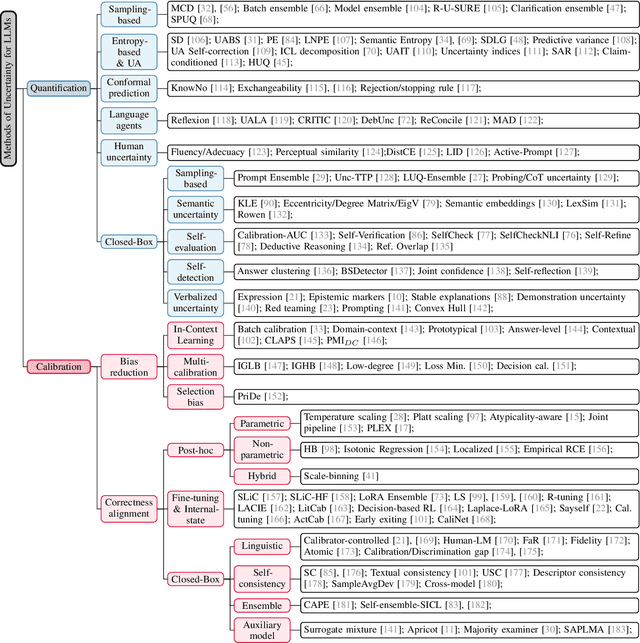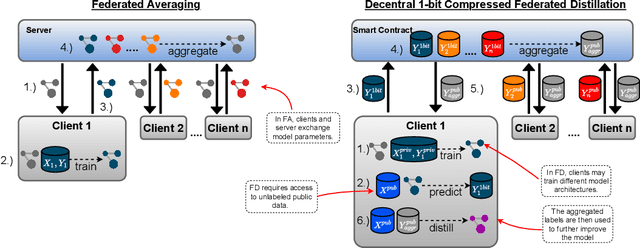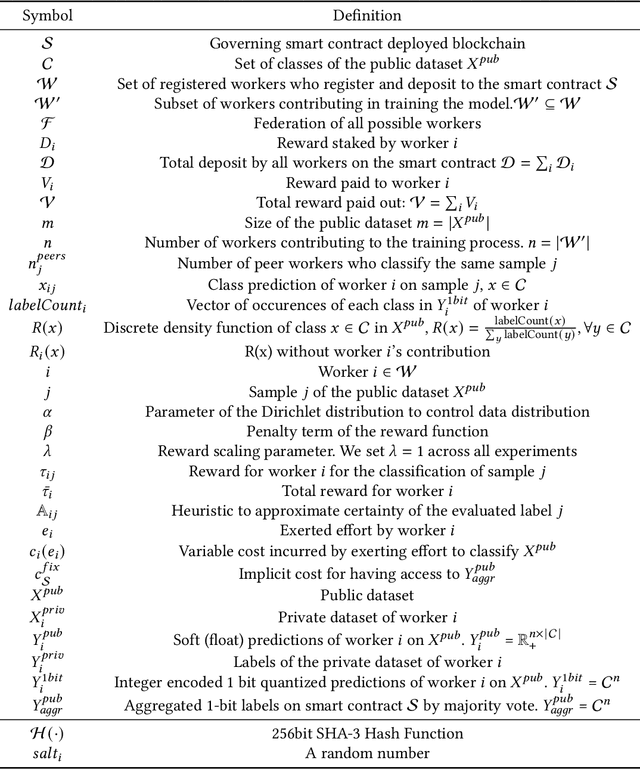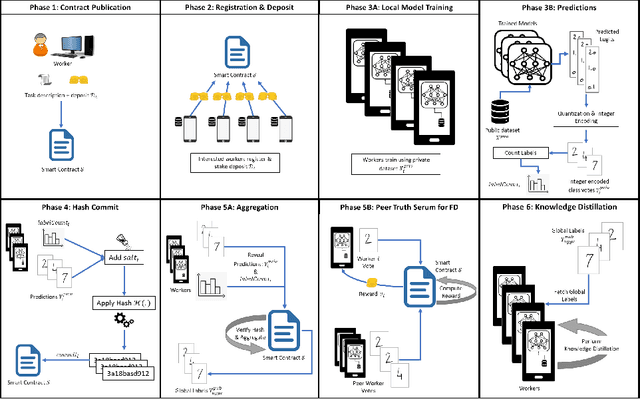Leon Witt
Comparing Uncertainty Measurement and Mitigation Methods for Large Language Models: A Systematic Review
Apr 25, 2025



Abstract:Large Language Models (LLMs) have been transformative across many domains. However, hallucination -- confidently outputting incorrect information -- remains one of the leading challenges for LLMs. This raises the question of how to accurately assess and quantify the uncertainty of LLMs. Extensive literature on traditional models has explored Uncertainty Quantification (UQ) to measure uncertainty and employed calibration techniques to address the misalignment between uncertainty and accuracy. While some of these methods have been adapted for LLMs, the literature lacks an in-depth analysis of their effectiveness and does not offer a comprehensive benchmark to enable insightful comparison among existing solutions. In this work, we fill this gap via a systematic survey of representative prior works on UQ and calibration for LLMs and introduce a rigorous benchmark. Using two widely used reliability datasets, we empirically evaluate six related methods, which justify the significant findings of our review. Finally, we provide outlooks for key future directions and outline open challenges. To the best of our knowledge, this survey is the first dedicated study to review the calibration methods and relevant metrics for LLMs.
Decentral and Incentivized Federated Learning Frameworks: A Systematic Literature Review
May 18, 2022



Abstract:The advent of Federated Learning (FL) has ignited a new paradigm for parallel and confidential decentralized Machine Learning (ML) with the potential of utilizing the computational power of a vast number of IoT, mobile and edge devices without data leaving the respective device, ensuring privacy by design. Yet, in order to scale this new paradigm beyond small groups of already entrusted entities towards mass adoption, the Federated Learning Framework (FLF) has to become (i) truly decentralized and (ii) participants have to be incentivized. This is the first systematic literature review analyzing holistic FLFs in the domain of both, decentralized and incentivized federated learning. 422 publications were retrieved, by querying 12 major scientific databases. Finally, 40 articles remained after a systematic review and filtering process for in-depth examination. Although having massive potential to direct the future of a more distributed and secure AI, none of the analyzed FLF is production-ready. The approaches vary heavily in terms of use-cases, system design, solved issues and thoroughness. We are the first to provide a systematic approach to classify and quantify differences between FLF, exposing limitations of current works and derive future directions for research in this novel domain.
Reward-Based 1-bit Compressed Federated Distillation on Blockchain
Jun 27, 2021



Abstract:The recent advent of various forms of Federated Knowledge Distillation (FD) paves the way for a new generation of robust and communication-efficient Federated Learning (FL), where mere soft-labels are aggregated, rather than whole gradients of Deep Neural Networks (DNN) as done in previous FL schemes. This security-per-design approach in combination with increasingly performant Internet of Things (IoT) and mobile devices opens up a new realm of possibilities to utilize private data from industries as well as from individuals as input for artificial intelligence model training. Yet in previous FL systems, lack of trust due to the imbalance of power between workers and a central authority, the assumption of altruistic worker participation and the inability to correctly measure and compare contributions of workers hinder this technology from scaling beyond small groups of already entrusted entities towards mass adoption. This work aims to mitigate the aforementioned issues by introducing a novel decentralized federated learning framework where heavily compressed 1-bit soft-labels, resembling 1-hot label predictions, are aggregated on a smart contract. In a context where workers' contributions are now easily comparable, we modify the Peer Truth Serum for Crowdsourcing mechanism (PTSC) for FD to reward honest participation based on peer consistency in an incentive compatible fashion. Due to heavy reductions of both computational complexity and storage, our framework is a fully on-blockchain FL system that is feasible on simple smart contracts and therefore blockchain agnostic. We experimentally test our new framework and validate its theoretical properties.
 Add to Chrome
Add to Chrome Add to Firefox
Add to Firefox Add to Edge
Add to Edge